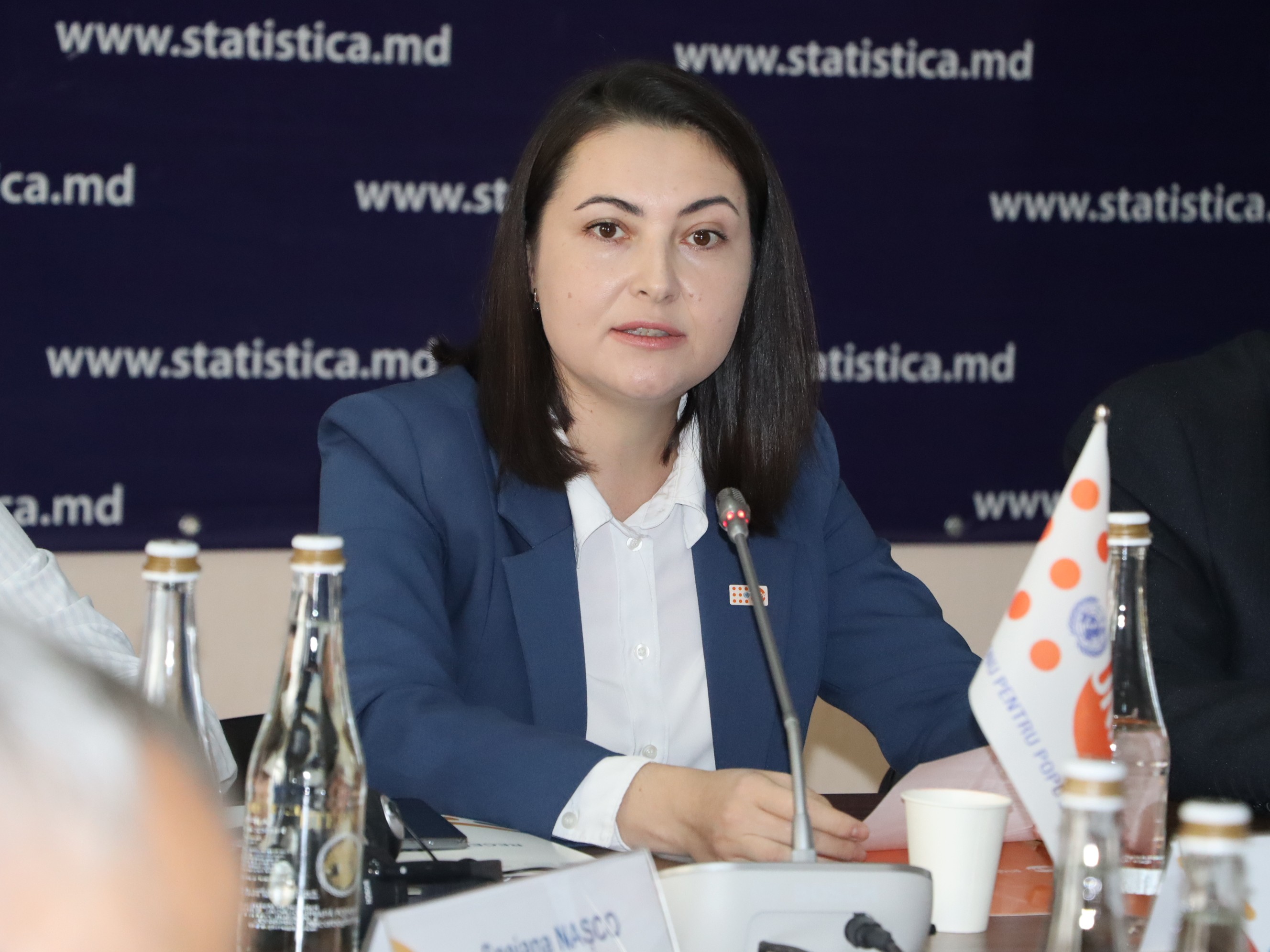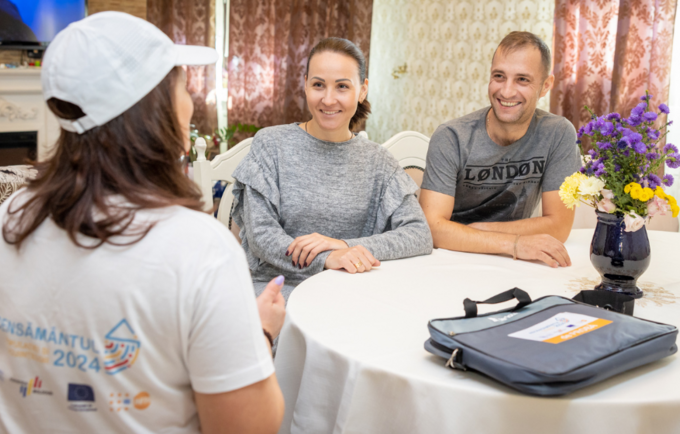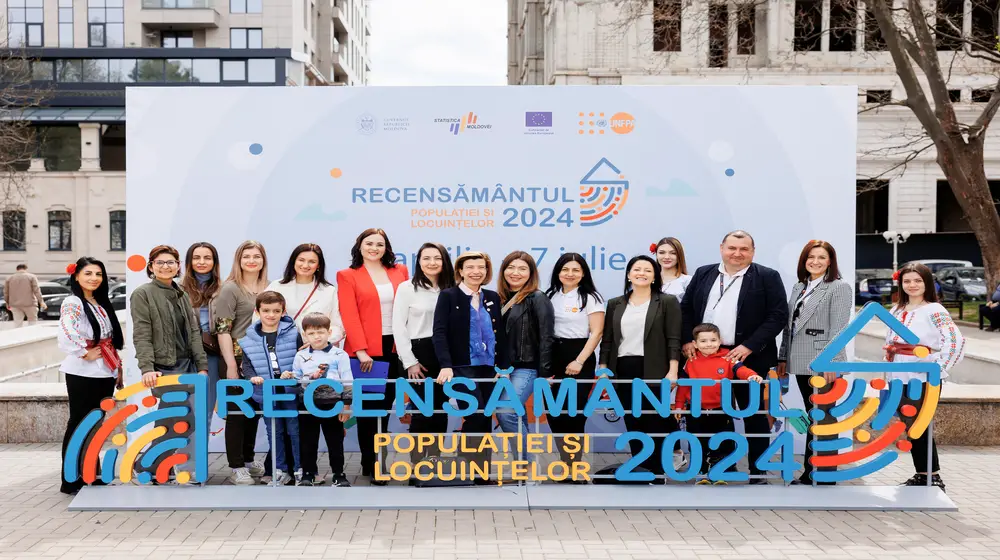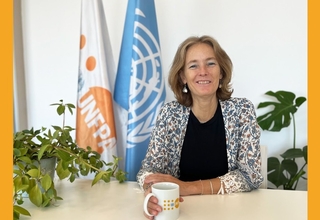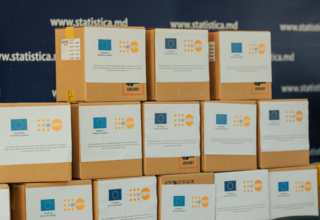The pilot census involved approximately 22 000 households in 11 localities in the Republic of Moldova, according to the data from the National Bureau of Statistics (NBS). 95% of respondents say that both the questions and the census process were explained to them in a clear and accessible way. These and other findings from the pilot census were presented on Friday 27 October, by the NBS at an event organized as part of the project „Support to the National Bureau of Statistics in the conduct of the 2024 Population and Housing Census”, funded by the European Union and co-funded by the United Nations Population Fund (UNFPA).
The pilot census is a key step in the preparation of the Population and Housing Census planned for 2024. In this context, the National Bureau of Statistics reiterated that the information collected in these national exercises is confidential and will be used strictly for statistical purposes. Representatives of the authorities and development partners urged the population to be receptive and participate in the 2024 census, stressing the crucial importance of ensuring that the 2024 census data correspond to the population reality. This data is essential for the effectiveness of Moldova's social and economic development policies.
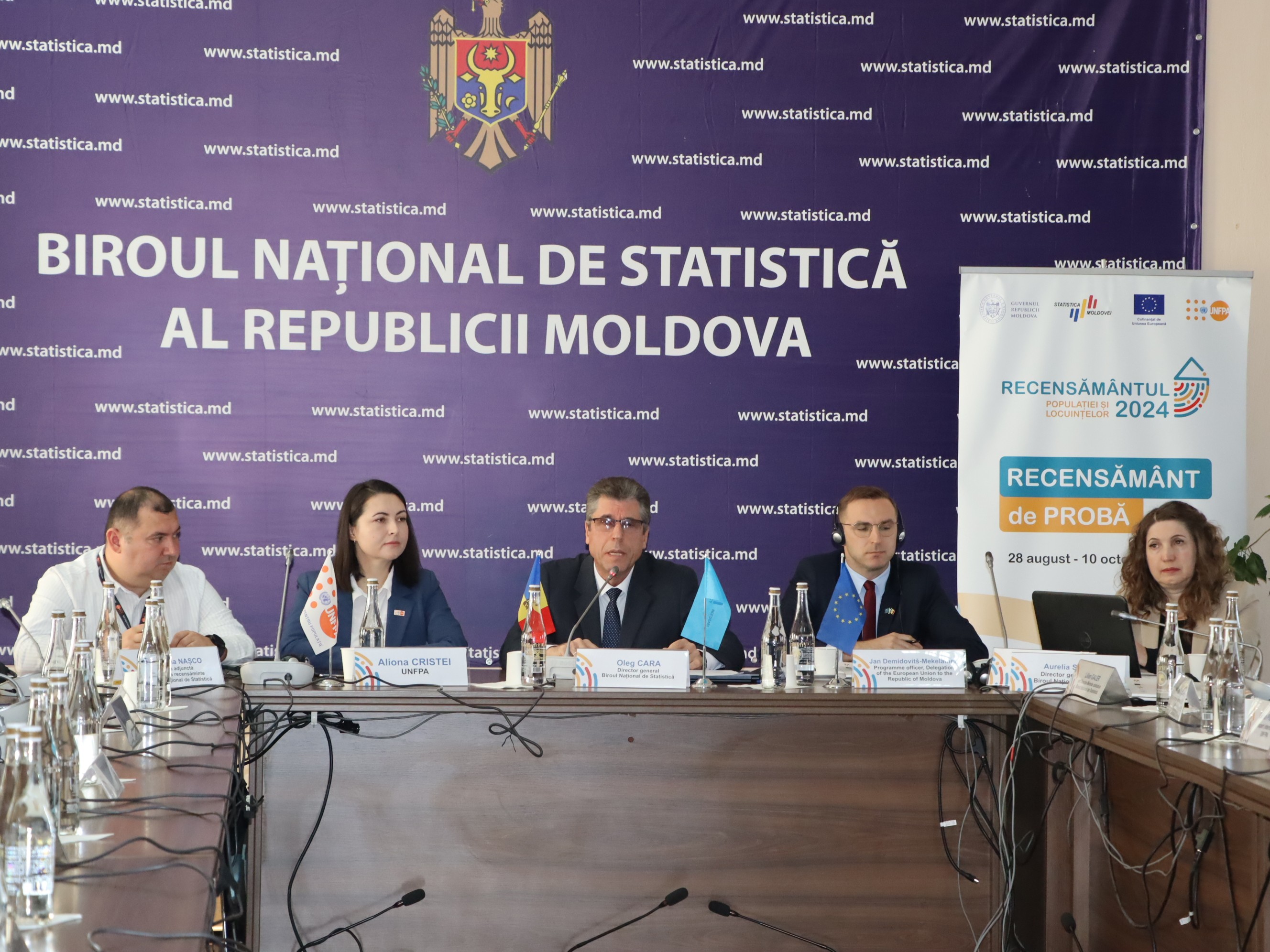
The pilot Population and Housing Census took place from 28 August to 10 October 2023, with data collected by enumerators through face-to-face interviews using tablets, with the CAPI (computer-assisted personal interview) method applied.
Among the challenges identified in the pilot census are reluctance of citizens, especially in urban areas, to participate in the census; too many questions in the questionnaire; hesitation to provide personal data from the National Identity Card (ID) and employment information; difficulties in correctly determining the residence status of the census respondents (permanent residents or tenants); and insufficient qualified staff involved in the data collection process.
Thus, to improve the census process in line with international standards, the experts put forward several recommendations, including informing the population widely to increase confidence and the need for the census; hiring qualified staff and training them; optimizing data collection software; reviewing the content of questionnaires and others.
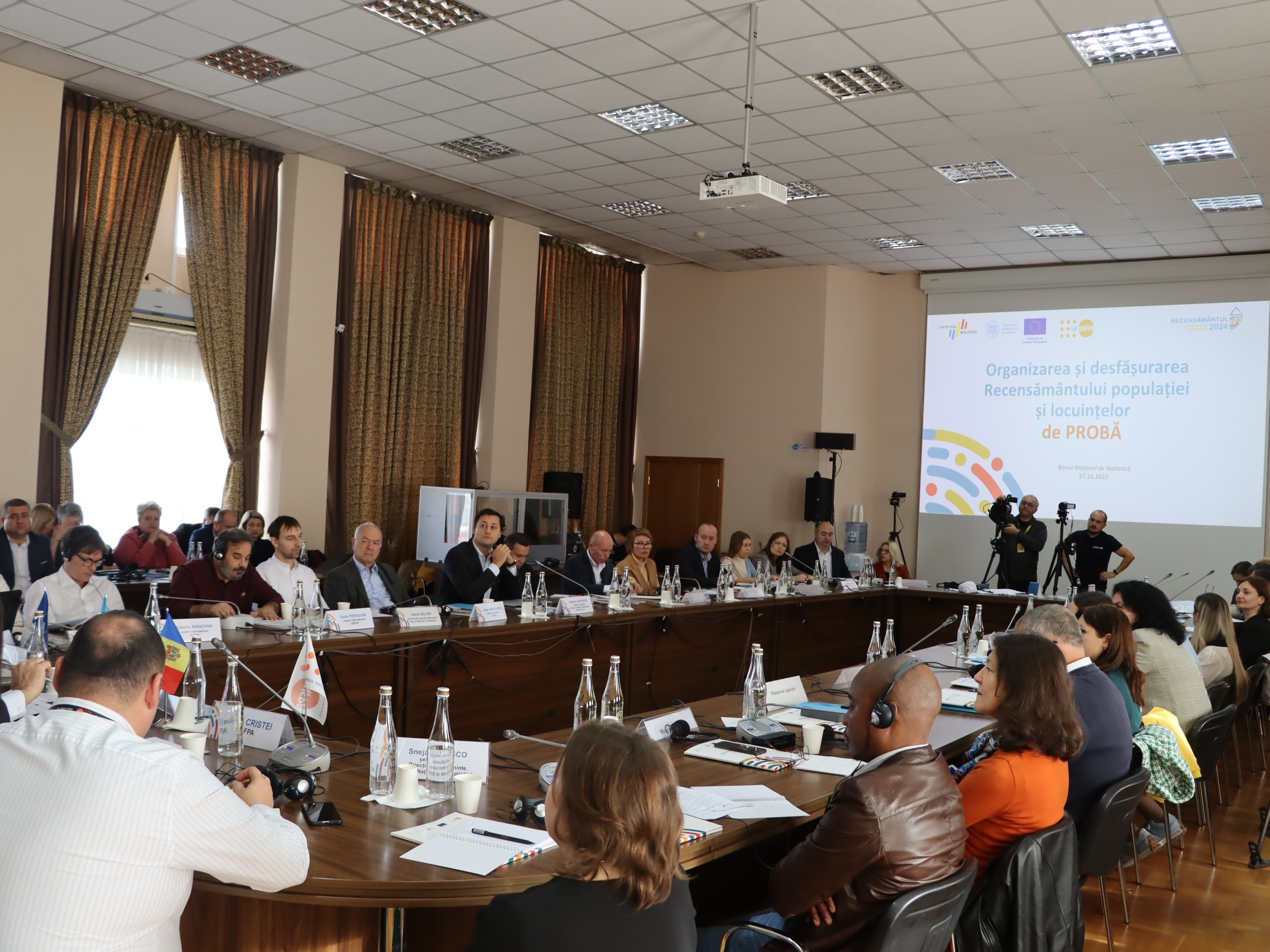
The purpose of the trial census is to assess the tools to be used in the data collection process and to prepare for the National Population and Housing Census, planned for 2024. Thus, during the pilot census the enumerators evaluated the functionality of the software, estimated the time needed to conduct an interview, and assessed the level of readiness of the population to participate in the census.
Overall, the average length of a questionnaire was 20-40 minutes. About 7 out of 10 people said that the duration of the survey was reasonable. 33% of those who took part in the survey said that some questions were annoying.
The Census of Population and Housing is conducted every 10 years and is the most important national statistical exercise that provides the complete picture of the country. The data collected from the census will provide essential and quality information for the development of national and local public policies, both economic and social, necessary for human development.
The pilot census was conducted from state budget sources, co-financed by the European Union and the UN Population Fund.
